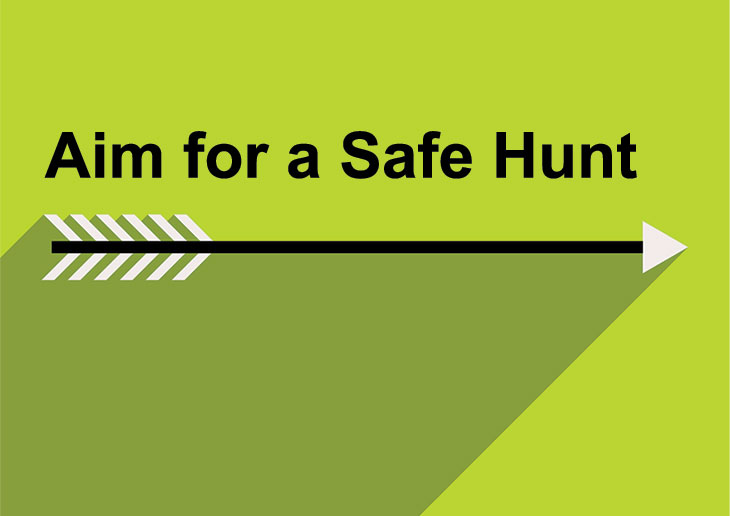
When most people think of hunting accidents, they assume that a gun is involved. In fact, guns only account for approximately 8 percent of hunting-related accidents, according to the National Safety Council. More hunters die from falls, heart attacks and exposure than gunshot wounds.
Falls, mostly from deer blinds, trees, ledges, slopes and rocks, account for many hunting accidents. Glen Sowell, vice president, FLBA of South Mississippi, Newton branch, remembers a time when he wished he had taken the advice he so often preaches to his sons.
Falls
"I did exactly what I tell my sons not to do," says Sowell. "I was climbing down from my deer blind using one hand to hold the ladder and one to hold my shotgun. Suddenly, I felt the ladder pivot to one side, and I did not want to just drop the shotgun. I figured I was close enough to the ground that I would not get hurt in the fall, so I just fell with the ladder. Well, a seasoned oak tree limb broke my fall and unfortunately my hipbone as well. I lay on the ground for about three-and-a-half hours before anyone found me. The fall resulted in a serious injury that required surgery and three months of using crutches."
Sowell recommends that all hunters check the ladders on their deer blinds.
"Always make sure the ladder is secure. Clamp it with something strong and check that there are not any big limbs or rocks surrounding the deer blind. Also, be sure and hold the ladder with both hands when climbing up or down. Had I done that, I probably would not have been hurt," he says. A rope with a harness gives added security for the climb down, he adds.
Heart Attacks
Besides falls, health factors play a role in hunting accidents. Hunters who are not acclimated to the rigors of the sport, have a family history of heart disease and are easily excited, or whose lifestyle habits include smoking and drinking should beware the potential risk of a heart attack. The excitement of spotting a deer can cause a hunter's heart rate to soar. Add to that the exertion of carrying heavy hunting equipment and dragging a carcass over rugged terrain, and there exists the possibility of a heart attack.
Exposure to Extreme Weather
Prolonged exposure to the cold can result in hypothermia, or reduced body temperature, which can be fatal. Also, for hunters in warmer climates, heat can cause heat exhaustion or stroke. Sounding the international distress signal, three short blasts from a gun in quick succession, may help in obtaining aid.
Water Dangers
Water is a silent and constant menace to all hunters, not just waterfowl hunters in boats. Hunters who unexpectedly find themselves in water should not panic and thrash about. They should relax and let the air in their clothing bring them to the surface. From this floating position, the hunter can move toward safety in a modified breaststroke or backstroke.
A Gun's Role
Although guns do not play a major role in hunting accidents, they do cause injury and even death if safety and precautions are not taken into consideration.
"People think that gun accidents will never happen to them. That just isn't true," says Joni Huwe, office assistant, FLBA of South Texas. Huwe recalls an incident that happened earlier this year when her son accidentally shot himself. "We had some feral hogs in a trap that we were going to butcher, so my son went to get his gun to shoot them. Normally, we use a .22 rifle to do this, but we only had his deer rifle. With a .22 you can stick it through the trap and shoot them, but with the deer rifle and a scope, you have to back up and focus in.
"The bullet went through the first side of the metal cage and hit the other side on its way out. The metal splintered and flew back into him. He had small pieces of metal embedded in his skin all over his body. I just thank God the bullet didn't come back and hit him. I wasn't prepared for it at all, and if the bullet had hit him, he might have bled to death before any help arrived," she says.
To be better prepared for such accidents, Huwe says everyone should know how to give good directions to their location. "It's always good to know road numbers, not just landmarks. Know how to explain which gate is yours and if it is locked. Also, if you own a cellular phone, bring it with you on your hunting trips. Always let someone know where you will be," she says.